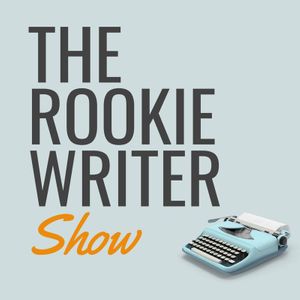S2/E4: David Baldacci Teaches Mystery and Thriller Writing
The Rookie Writer Show - A podcast by H. Dair Brown, The Rookie Writer Show Host

Categories:
This week we’re reviewing our first class: David Baldacci Teaches Mystery and Thriller Writing presented on the Master Class platform. It was first offered in June 2019.
Let me just say this before I say anything else about this class. David Baldacci just seems like a really, really nice person. I don’t think I’ve ever gotten around to reading any of his forty books, But like a lot of the sentient world walking around in 1997, I saw Absolute Power, the film based on his debut book of the same name. He’s done okay since, with more than $130 million in book sales worldwide.
I do read a lot of mysteries and thrillers, though I don’t tend to gravitate to the subject matters of a lot of David’s books (i.e. political intrigue, the CIA, the FBI). After this class, however, I will be looking for one to try. The effort, heart, and professionalism he puts into his craft is evident in the way he talks about his writing and the way he presents the information in this course.
This course has lessons on everything from mindset to craft to the business of writing. Included:
* 18 video lessons* A 97-page class workbook with key points from the lessons and writing assignments to help you get the most out of the lessons* Examples of his handwritten outlines for two of his books (both around 40 pages) * A forum community (facilitated by Master Class staff) where you can interact with others taking the course
There’s a lot here, but like usual, I’m just here to give you a taste. Here are my…
Three Things
1 He spends two lessons discussing research methods and sources, which makes sense given his books are known for being very thoroughly researched and therefore pretty realistic. He urges you to get out there and talk to people, to walk the space whenever you can, etc. That being said, he reminds you to stop and actually write the story. Or as he says, “Research is fun; it’s hard work, too. No research is as hard as actually writing the story.” He now alternates writing and research rather than waiting until he has all the research he needs before starting. He commiserates, “I know it’s attractive to keep researching. It’s like being a permanent student…Just as a writer, realize that you have to…stop the research and write the book.” Research is important, but it can also be a siren’s call to endlessly prepare and procrastinate actually writing your book. (If you know me at all, you are laughing right now.)
2 Echoing last week’s episode, think of your relationship with your editor as a collaborative one, and not a combative one. Many times he’s had a situation where an editor pointed out something on say, page 48, that had him write something completely different on page 238 that the editor didn’t even mention. The other eyes make your story stronger. Remember,